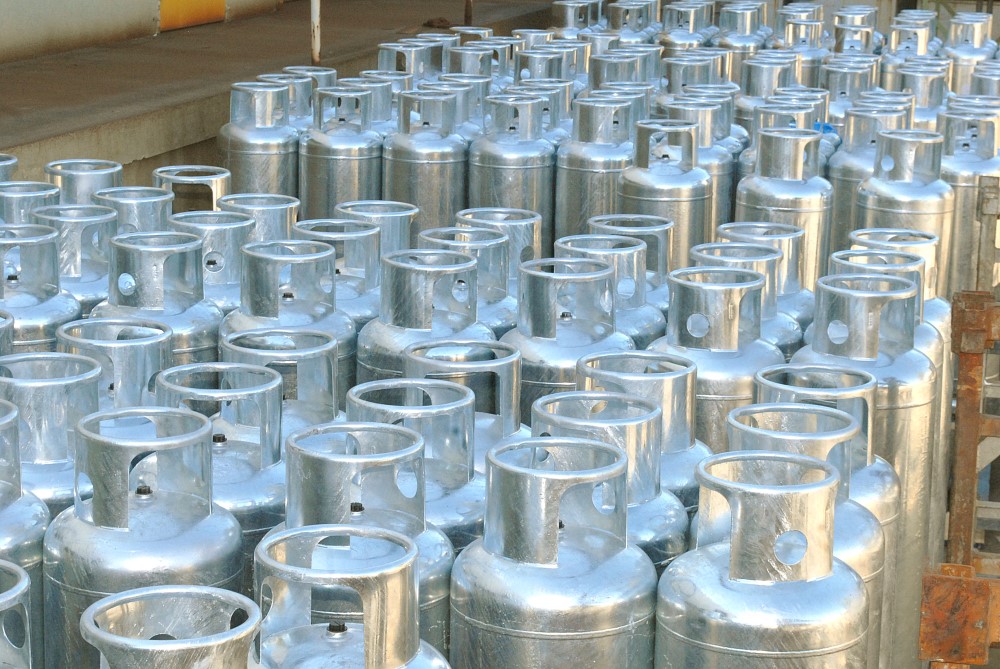Filling the Tank: An Ode to Gas Cylinders
Natural gases are used in a wide variety of everyday products found in homes and worksites, and liquefied petroleum gas (LPG) is no exception.
Made of varying mixtures of propane and butane, LPG is used in everything from vehicles (as Autogas) and cooking fuels to aerosols and refrigerants.
These gases wouldn’t be usable without a container to keep them in of course, and that’s why manufacturers of pressurised cylinders are such an essential part of the LPG supply chain, ensuring efficient storage methods are in place to maintain commercial delivery.
Containing LPG in this manner would not have been possible without the innovations of American chemist Dr. Walter Snelling, who discovered in the early 20th century that LPG could achieve enough energy density to provide an ample source of power for a whole host of commercial applications when kept in pressurised steel containers.
This discovery changed the course of modern history. Indeed, iconic cartoon gas guzzler Hank Hill of King of the Hill fame is a notable fan, citing Snelling as the “father of modern propane”.
From the good doctor’s early endeavours sprang a multi-billion-dollar industry indispensable to the progression of modern living standards, powering vehicles, stoves, camping equipment, fridges, welding tools, heaters, and much more.
LPG is a big industry in Australia too, with production growth of 32 percent over 2018–19 according to a report from the Department of Industry, Science, Energy and Resources, and the growth of the sector is keeping local manufacturers busy.
Based in regional Echuca, Victoria, Manchester Tank & Equipment is one of Australia’s largest manufacturers of pressure vessels and steel cylinders for LPG, compressed air, refrigerants, and several other products. The company was established in the 1950s and is responsible for supplying a large suite of pressure vessels to most of the LPG distributors in Australia and the Asia-Pacific region.
“Gas is cost effective, readily available and reliable, with low emissions — it is such an important part of the energy transition to 2050 and beyond…”
Ken Woods joined the business in 1994 as a Production Engineer before progressing into Operations Management and then to his current role of General Manager in 2008. He has overseen considerable growth within the company and the wider gas industry over his more than 26 years of employment.
“I have always worked in a manufacturing business and enjoy seeing steel raw materials converted into finished products as the result of a multitude of manufacturing operations and processes,” he says.
A lot of work goes into making sure pressure vessels are produced to the utmost safety standards. Manchester Tank employs a committed, hands-on team who ensure Australian manufacturing continues.
The experienced production team uses a multitude of specialised equipment and processes to manufacture the LPG cylinders. Many of the cylinder components are manufactured at the company’s Echuca facility prior to the cylinders being fabricated on semi-automated welding lines.
The cylinders are stress relieved in a natural gas-fired inline furnace before pressure testing. Post-testing, the cylinders’ surface is pre-treated, and a final coating applied; in most cases, this final application is either powder coated or galvanised. Finally, the cylinders are valved and packed for shipping.

“Steel coils arrive at the front of the factory and finished goods are dispatched at the rear of the factory; our Australian-made pressure vessels — combined with a range of imported cylinders from partnership manufacturers, service a multitude of industries, with the LPG sector being the main consumer,” Ken explains.
The large range of cylinders manufactured at the Echuca facility meet a variety of needs including automotive conversion to LPG, heating, cooling, cooking, power generation, weed control, and more, and are available in a variety of sizes.
Ken and his team keep on top of new developments to ensure the continual refinement of its products and processes. This year, Manchester Tank will commence supplying a new type of leisure cylinder valve in line with new Australian Standards. The new valve, called the LCC Type 21, is expected to offer safety benefits over its predecessor. It may sound like a simple switch in theory, but in practice it is a large-scale project involving extensive consultation and a lengthy planning time frame.
“Government, Standards committees, Gas Energy Australia, industry groups, LPG distributors, the caravan industry, and a multitude of retail and distribution stakeholders have been involved in the review and planned implementation process,” Ken explains.
Companies like Manchester Tank are one of the many manufacturing industries in Australia that rely on a stable supply of gas to support the growth and maintenance of their business. Ken explains that while he is confident about the future of Australian gaseous fuels, he is also mindful that industry and manufacturers need to be proactive to ensure that their benefits remain recognised.
“Policies can shift, and much focus continues to be on renewable energy in government, media and the public arena. My belief is that gas is cost effective, readily available and reliable, with low emissions — it is such an important part of the energy transition to 2050 and beyond and is the perfect energy source to back up renewables,” he concludes.
Explorewith Natural Gas Subscribe


